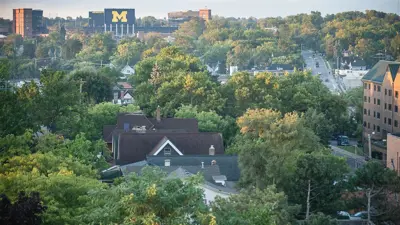In winter, set your thermostat to the lowest comfortable temperature (try 68°F as a starting point and adjust till comfortable). In summer, set it to the highest comfortable temperature (around 78°F to start and adjust). The smaller the temperature difference between outside and inside, the more you’ll save.
Save as much as 10% a year on heating and cooling costs by simply turning your thermostat back 7°-10°F for 8 hours a day when you aren’t at home. Watch this video on how to set a programmable thermostat to automatically save energy when you leave for work or school – to save up to $180 annually.


